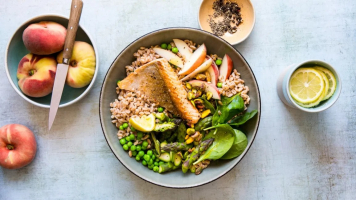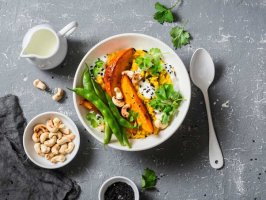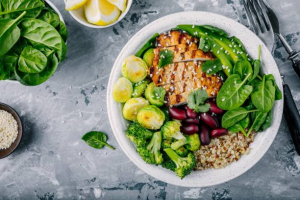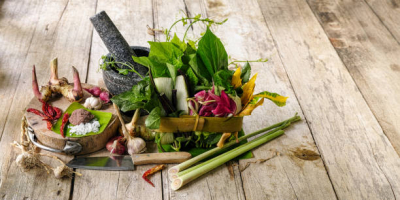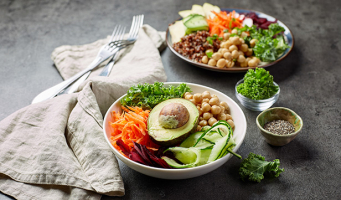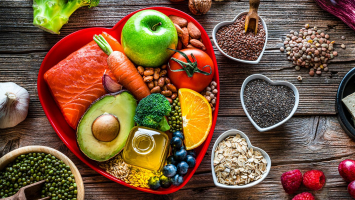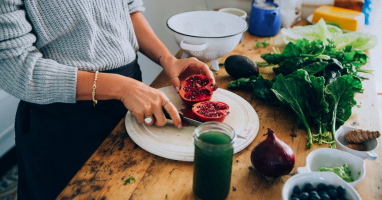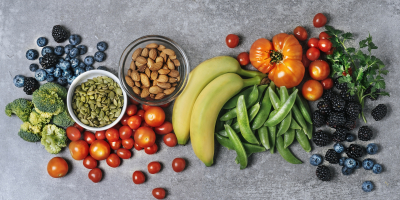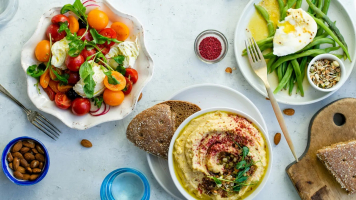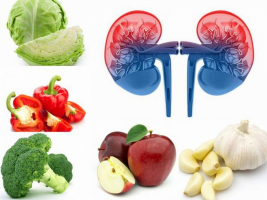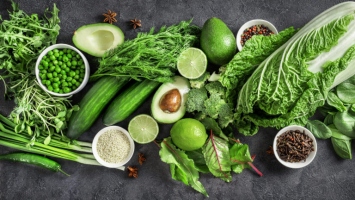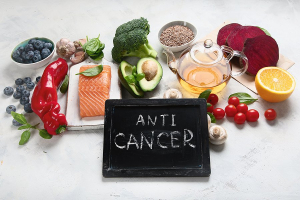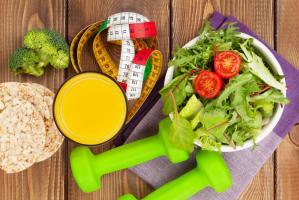Top 10 Best Foods For Gut Health
What you eat directly influences the makeup of bacteria in your gut—known as the microbiome—which in turn impacts your health. A healthy gut helps keep chronic ... read more...diseases like heart disease and cancer at bay, and also can reduce inflammation, keep your brain healthy and help you maintain a healthy weight. It's never too late to change your diet to support better bugs in your gut. Below are the top 10 best Foods for Gut health for you to choose from.
-
Kimchi, the national food of South Korea, is a spicy pickled vegetable dish. Kimchi is traditionally made by combining cabbage, scallions, or radishes in a brine with garlic, ginger, chili pepper, and fish sauce, and allowing the ingredients to ferment. Kimchi has a rich history in South Korea dating back more than two thousand years. Traditionally, kimchi is fermented in cool pits in the ground to help control the speed at which bacteria can grow. Properly made, kimchi can help preserve vegetables all year long. Kimchi is a crunchy, flavorful food that can provide impressive health benefits.
Kimchi is an excellent probiotic. The same lactobacilli bacteria found in yogurt and other fermented dairy products are also found in kimchi. Consuming the so-called “good bacteria” in kimchi can help you maintain healthy digestion, reduce the negative symptoms of many gastrointestinal disorders, such as Irritable Bowel Syndrome and Colon Inflammation. Maintaining a healthy gut flora is important to your overall health.
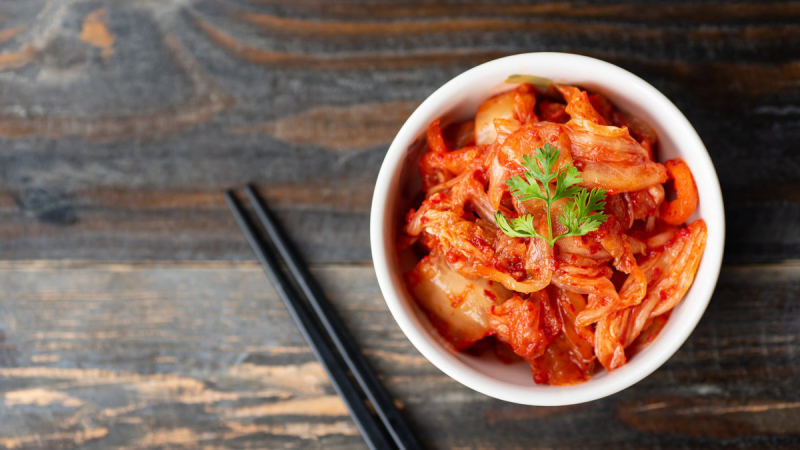
Via: Wiki FCarePlus 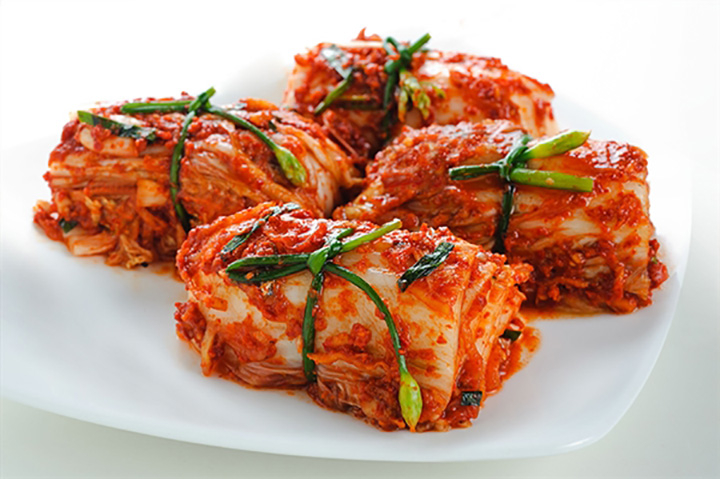
Via: VOV -
Sauerkraut is a type of fermented cabbage with major health benefits. It’s thought to have originated in China more than 2,000 years ago. Back then, fermentation was one of the methods used to keep foods from spoiling quickly. Sauerkraut survived the test of time to become a popular side dish and condiment in many cultures. It’s especially appreciated in Germany, where its name comes from. Due to the fermentation it undergoes, sauerkraut offers nutrition and health benefits far beyond those of fresh cabbage.
Your gut is said to contain over 100 trillion microorganisms or “gut flora”, which is more than 10 times the total number of cells in your body. Unpasteurized sauerkraut contains probiotics, which are beneficial bacteria that act as the first line of defense against toxins and harmful bacteria. They can also improve your digestion and overall health.
Probiotics like those in sauerkraut can help improve the bacterial balance in your gut after it has been disturbed by the use of antibiotics. This can help reduce or prevent antibiotic-provoked diarrhea. Research also shows that probiotics help reduce gas, bloating, constipation, diarrhea, and symptoms linked to Crohn’s disease and ulcerative colitis.
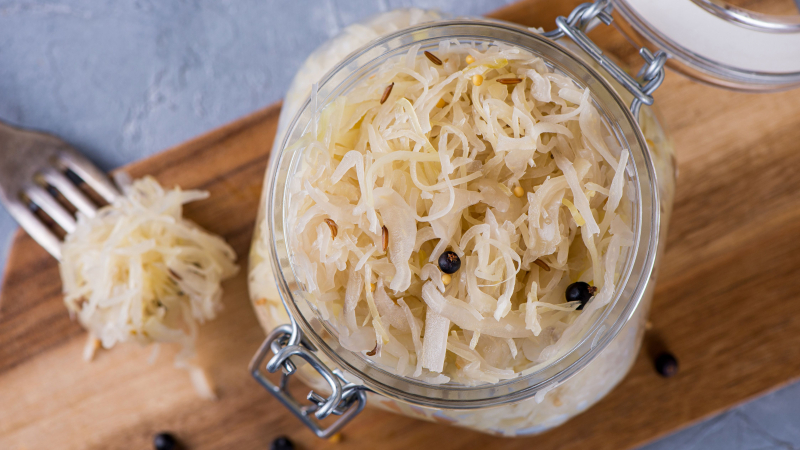
Via: The Spruce Eats 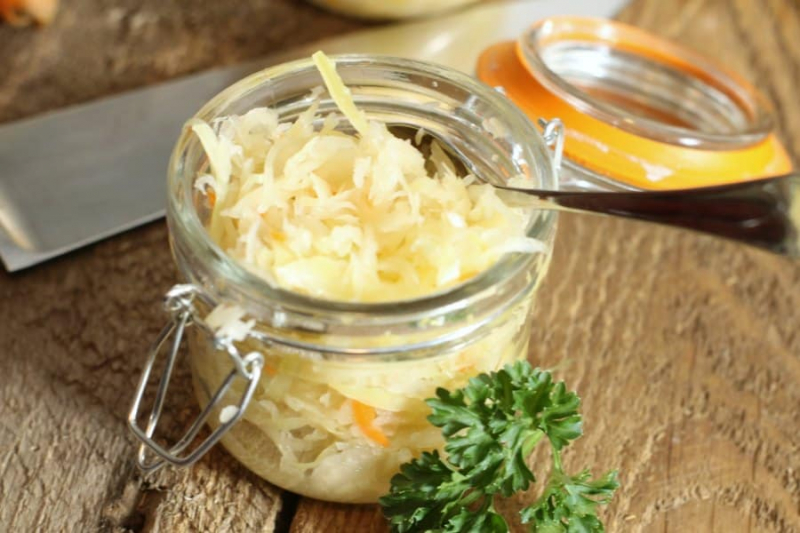
Via: Earth, Food, and Fire -
Kefir, pronounced kee-feer, is a drink made from the fermented milk of a cow, goat, or sheep. Water kefir is a similar product but has a water base instead of milk. Kefir is often compared to Greek yogurt, and in some ways, the two products are similar. Like Greek yogurt, kefir has a slightly sour flavor and is created through a fermentation process. However, kefir has a thinner consistency than Greek yogurt drinks. Also, kefir and Greek yogurt contain different types of beneficial bacteria.
It’s no surprise kefir is a popular beverage for supporting digestive health. The product contains around 30 unique species of probiotics, “good bacteria” that are known to improve gut health and that may aid the body’s digestive processes. It's made when kefir grains, which are colonies of yeast and lactic acid bacteria, ferment the sugars in milk, giving it a slightly thicker consistency and tart flavor. Similar to yogurt, kefir is packed with probiotics.
Buy plain kefir (instead of flavored) to skip added sugars. Due to fermentation, kefir has a slightly tart and acidic taste, which makes it tasty added to a breakfast smoothie instead of milk. Or try substituting kefir for milk in overnight oats for a healthy combo of probiotics and fiber.
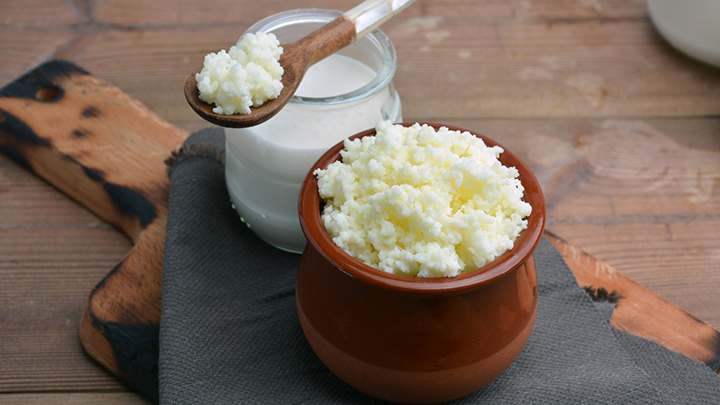
Via: Cooky.vn 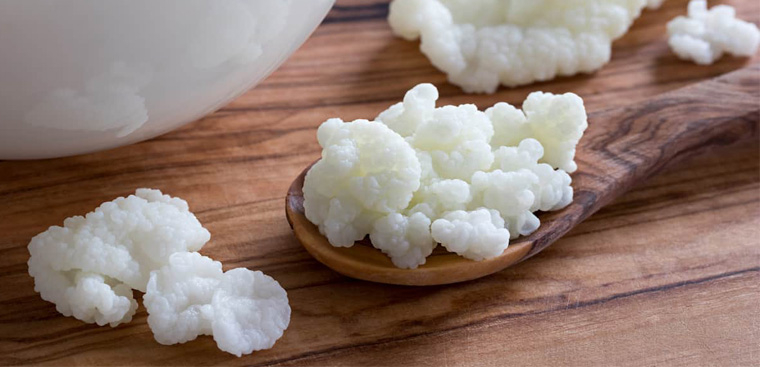
Via: Eating Well -
Kombucha is a tart, fizzy tea made by adding a SCOBY (symbiotic colony of bacteria and yeast) and sugar to green or black tea. It's then fermented for a week or more. During fermentation alcohol and gases are produced, giving the kombucha natural carbonation. The amount of alcohol is usually less than 0.5% alcohol by volume (although some have been found to have closer to 2-3%).
Additionally, acetic acid and lactic acid bacteria are produced, the latter of which is known to function as a probiotic. When consuming kombucha made from green tea, you'll also get the antioxidant properties associated with tea. Keep in mind that some kombuchas, like those made from black tea, contain caffeine. Others have artificial sweeteners, which can negatively alter gut bacteria, so read labels.
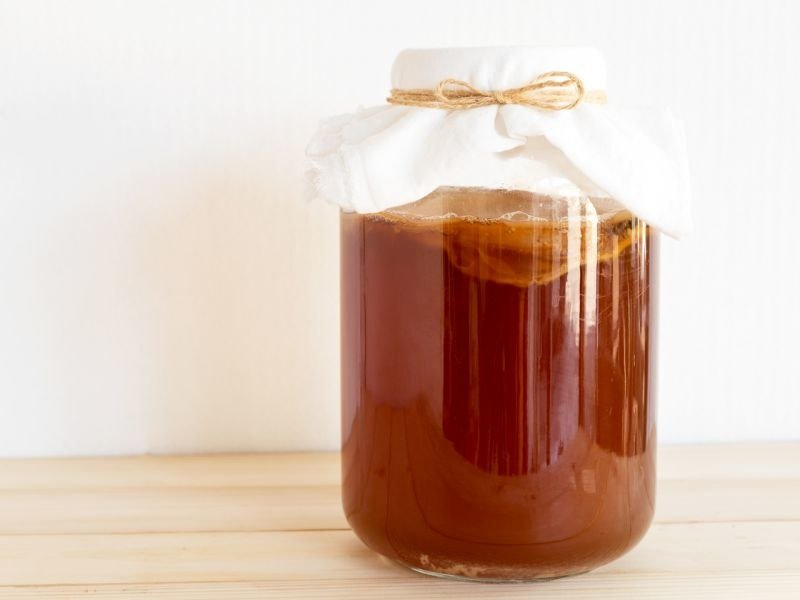
Via: Medical Xpress 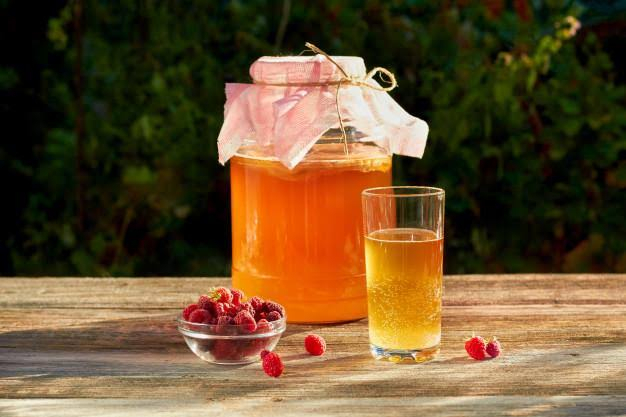
Via: Freepik -
Yogurt (specifically the dairy kind) is rich in probiotics, which support your immune system and improve digestive health by maintaining levels of 'good bacteria in the gut. These good bacteria help break down lactose and improve symptoms of irritable bowel syndrome too. Besides supporting your digestive system, this will positively impact your brain, too. Scientific studies have shown a strong connection between gut health and brain health. That means, eating yogurt regularly can help with both cognitive function and mood.
Yogurt is probably the most popular probiotic and for good reason. It's made when good bacteria are added to milk, where they metabolize lactose to form lactic acid and other beneficial bugs. Look for yogurt labeled with the "Live & Active Cultures" seal, which guarantees 100 million probiotic cultures per gram. A quick look at the ingredients list will also show you if there are bacteria in the yogurt. Don't eat dairy? The probiotics in yogurt help digest some of the lactose (milk sugar) so if you're lactose-intolerant, you may be able to enjoy yogurt. Plus, many companies now make dairy-free and vegan yogurts that contain probiotics.
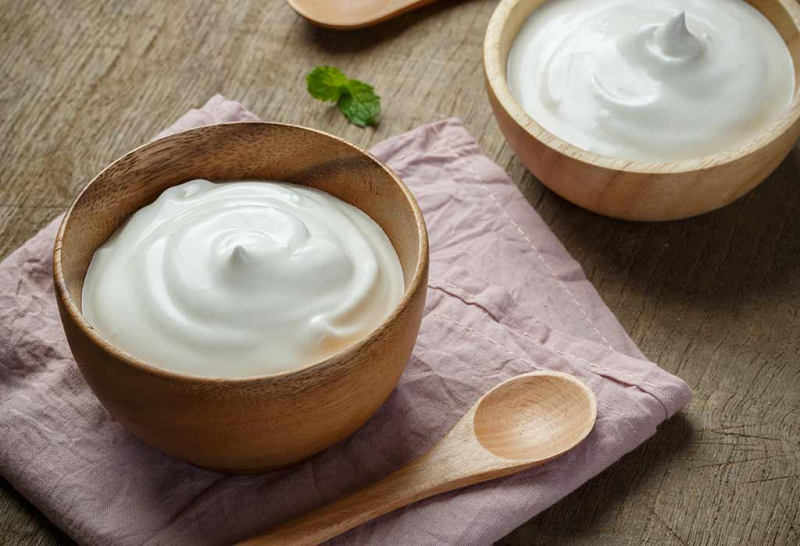
Via: Krishi Jagran 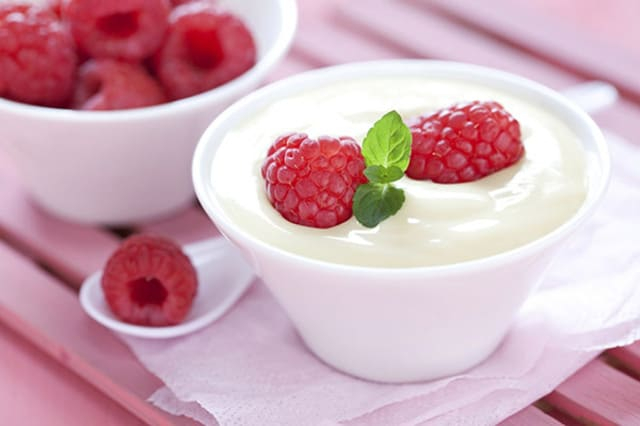
Via: Michelia.vn -
Tempeh is a traditional Indonesian food made from soybeans that have been fermented or broken down by microorganisms. Following fermentation, the soybeans are pressed into a compact cake commonly consumed as a vegetarian source of protein. In addition to soybeans, other bean varieties may be used to make tempeh. It may also be made from wheat or a mixture of soybeans and wheat. Tempeh has a dry and firm but chewy texture and a slightly nutty taste. It can be steamed, sautéed, or baked. Recipes often recommend marinating it to add more flavor.
Much like other meatless sources of protein, such as tofu and seitan, tempeh is a popular choice among vegans and vegetarians because it’s packed with nutrients. Tempeh is a probiotic food that influences your gut microbiome. Your gut microbiota is the bacteria that reside in your digestive system. It also seems to be rich in prebiotics — types of fiber that promote the growth of beneficial bacteria in your digestive system.
Studies have found that prebiotics increases the formation of short-chain fatty acids in the colon. These include butyrate, which is the primary source of energy for the cells that line your colon. Evidence also suggests prebiotic supplements cause beneficial changes in the gut microbiota. Although studies have provided mixed results, some have associated prebiotic intake with increased stool frequency, reduced inflammation, and improved memory.

Via: Istock 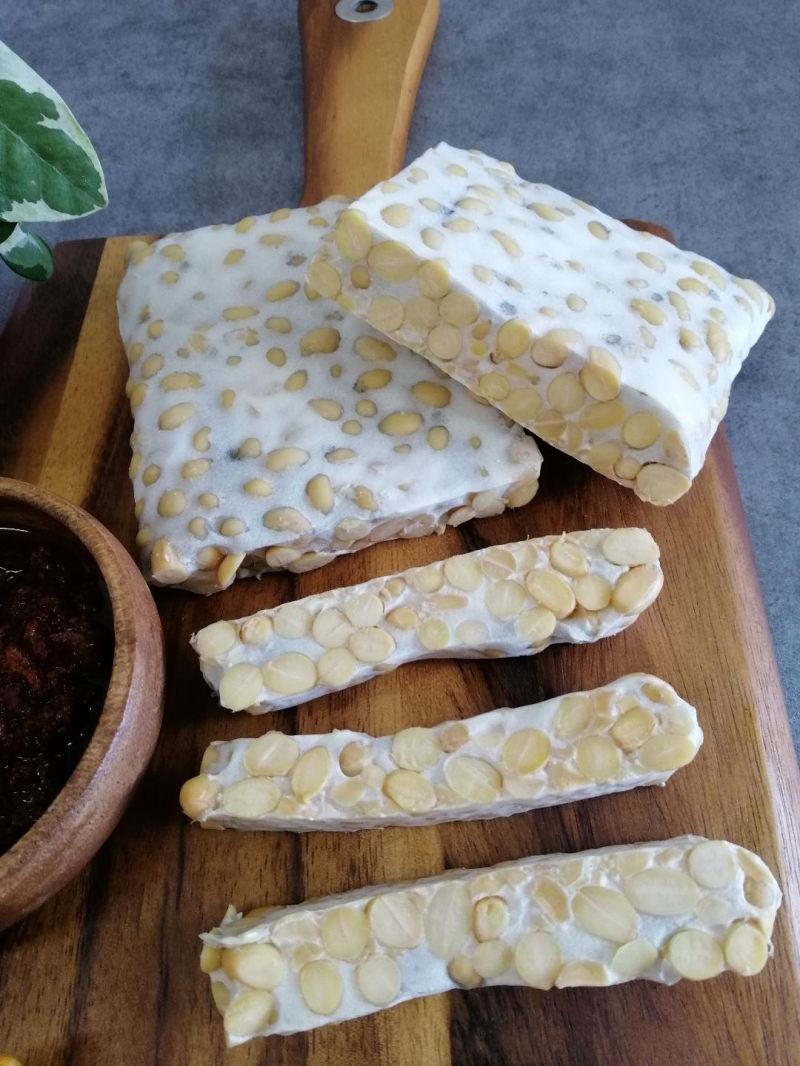
Via: Beenut -
Miso is a fermented paste made from soybeans, barley, or rice. Similar to other fermented foods, beneficial bacteria are produced in the fermentation process. You'll also get some protein if you eat miso made from soybeans. A little bit goes a long way, which is good since miso is also high in sodium.
Miso has a rich source of vitamins and minerals, as well as probiotics, known as the gut’s “good bacteria”. Research has found a number of potential health benefits to consuming miso: Healthier Digestive System, Reduced Risk of Heart Disease, Reduced Risk of Cancer, Easing of Menopause Symptoms,... Healthier Digestive System, Miso soup is full of probiotics, which contribute to improved gut health. Miso soup contains probiotic A, oryzae, which can reduce the risk of inflammatory bowel disease and other problems with the digestive system.
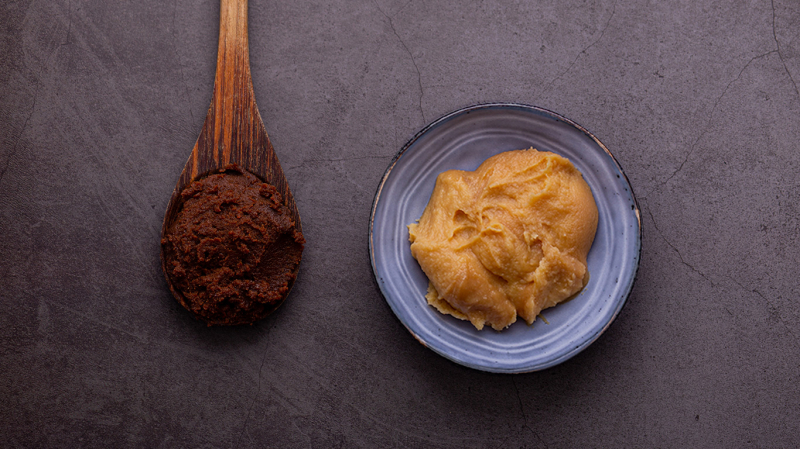
Via: Japan Info 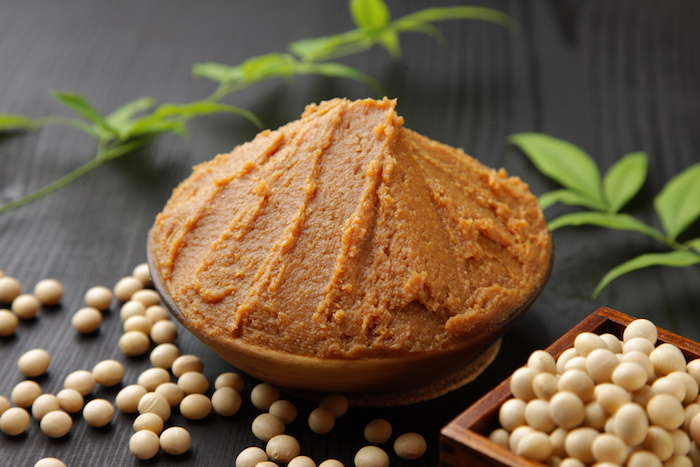
Via: The Spruce Eats -
Bananas have a soothing effect on the gut thanks to their high content of pectin, a soluble fibre that not only helps lower cholesterol but normalizes bowel function. The high fibre content of bananas helps to promote feelings of fullness and appears to reduce bloating. The resistant starch in bananas also has a prebiotic effect, helping to fuel the gut bacteria so they both increase in number and produce beneficial compounds called short-chain fatty acids.
Green bananas (the unripe ones) are best for the gut because they contain resistant starch, a type of indigestible fiber that produces more good bugs when your microbes feed on it. Resistant starch can also be created by cooking grains and then cooling them. So go ahead and make barley in bulk for the week. Ripe bananas are full of fiber too. Eat bananas with peanut or almond butter for fiber, protein and healthy fat. Or add to overnight oats, Greek yogurt, or a high-fiber cereal, or top whole-wheat toast.
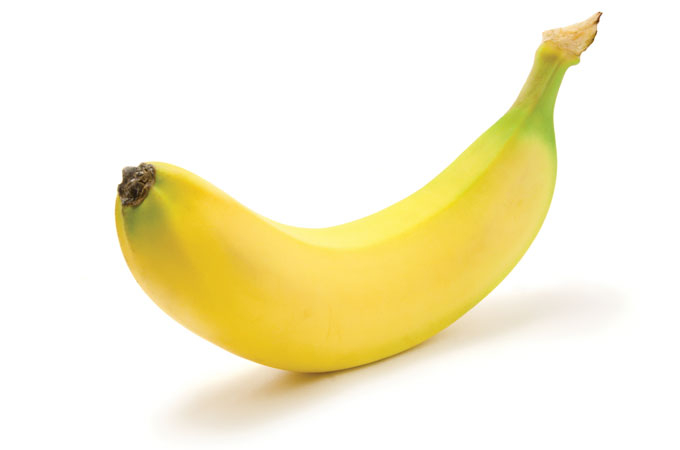
Via: Atlas Obscura 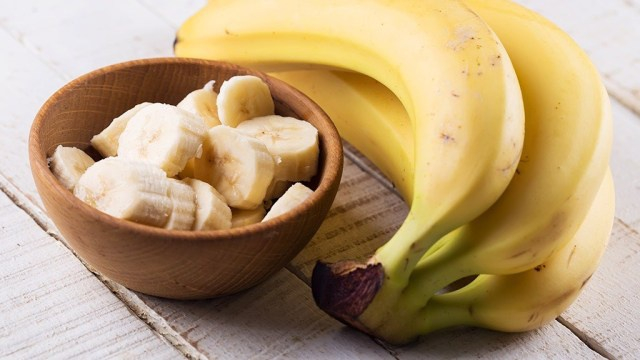
Via: Tododisca -
Raspberries are a popular berry with rich color and sweet juicy taste. They are a good source of vitamins, minerals, and antioxidants. Raspberries can range in color from the popular red and black varieties to purple, yellow, or golden. Each color of berry has a unique composition of vitamins, minerals, and antioxidants.
The fiber and water content in raspberries can help prevent constipation and maintain a healthy digestive tract. Adequate fiber promotes the regularity of bowel movements, which is crucial for the daily excretion of toxins.
One cup of raspberries has a whopping 8 grams of fiber, about one-third of your daily value. Raspberries are deliciously eaten fresh but are just as nutritious purchased frozen and thrown into a smoothie. Or add them to yogurt, oatmeal or high-fiber cereal.
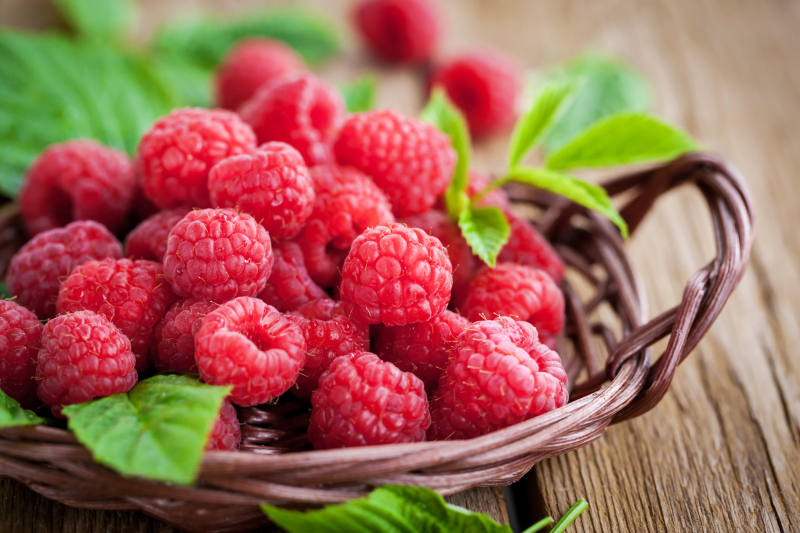
Via: Itinari.com 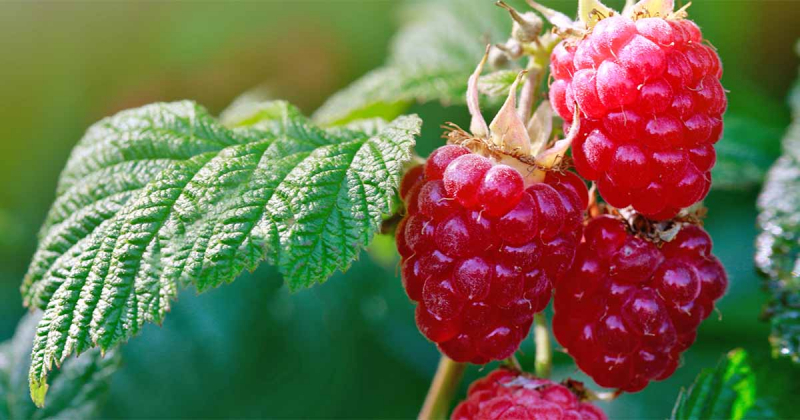
Via: Gardener's Path -
The Jerusalem artichoke (Helianthus tuberosus) or sunroot is a species of sunflower native to eastern North America and found from eastern Canada and Maine west to North Dakota, and south to northern Florida and Texas. It is not related to the domestic artichoke, but rather to asters, daisies, and sunflowers. Sunroots are cultivated for their tuber, which is used as a root vegetable.
Jerusalem artichokes have 47 grams of fructans in 1 cup (regular artichokes clock in with just 6 grams per 'choke). One cup also delivers 3 grams of protein, 2.4 grams of fiber, 25% DV for thiamin, and 28% DV for iron. The majority of carbohydrates in 'chokes are inulin, a prebiotic fiber that provides food for your critters. Thiamin (vitamin B1) supports healthy hair, skin and nails, and iron helps form red blood cells. Try sunchokes roasted with olive oil and garlic, raw in salads (they have a texture similar to water chestnuts), or in Jerusalem Artichoke-Potato Soup with Crispy Croutons.
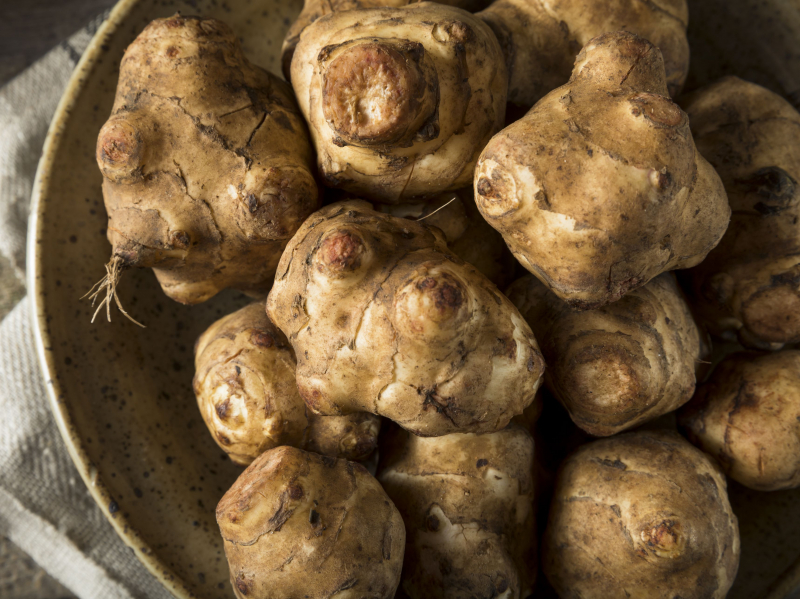
Via: The Spruce Eats 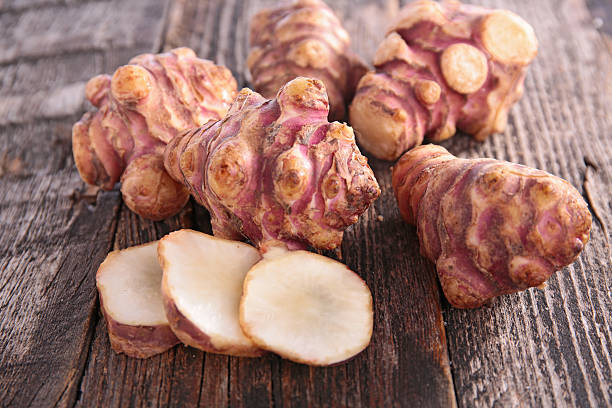
Via: Istock
















